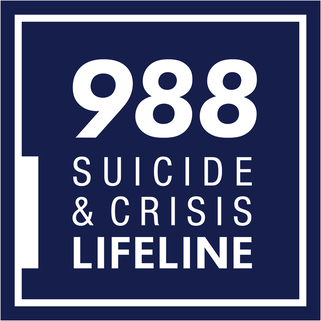|
By ABCS RCM
When individuals decide to seek treatment for a behavioral or mental health concern, they are sometimes surprised by the variety of mental health providers. There are actually a variety of mental health professionals. But, the goal for all of these professionals is for patients to achieve their recovery goals. One key difference between these professionals is their medical specialization or focus, as well as their educational background. All behavioral and mental health providers must be licensed by the state in which they are located in order to legally provide treatments and therapy. Yet, healthcare professional job titles and specialties sometimes varying from state to state. For example, in the state of Ohio, the Ohio Department of Mental Health & Addiction Services (OhioMHAS) has statutory and regulatory authority over providers of mental health services. However, separate standards can apply depending on the type and level of service(s) provided. Other differences are whether they are able to prescribe medications and do they treat patients in private practice, group practice or hospital setting. More specifically, some professionals may work in an inpatient facility, such as a general hospital and psychiatric facility. Other providers may work in an outpatient facility, like a community mental health clinic, school and private practice. With this in mind, the descriptions below are intended to only provide a general overview of mental health providers. Clinicians, Counselors & Therapists: These healthcare providers possess a master’s degree in mental health specialty. The degree is either an M.S. or M.A. in a mental health-related field such as psychology, counseling psychology, marriage or family therapy. As a mental health professional, they are trained to evaluate a patient’s mental health. They also use various therapeutic techniques and strategies based on their specific training programs. As mental health providers, they provide treatments under a variety of titles ranging from counselor, clinician or therapist. Their titles may vary depending on the treatment setting. The licensure & Certification varies by specialty and state. A few examples of the licensure include: LPC (Licensed Professional Counselor), LPCC (Licensed Professional Clinical Counselor) or LICDC (Licensed Independent Chemical Dependency Counselor). Social Workers: Social workers have obtained a bachelors or master’s degree in social work. The degree is either a B.S.W or a M.S.W. Similar to counselors and therapists, these healthcare providers are trained to evaluate an individual’s mental health. They will administer therapeutic techniques based on specific training programs. However, they are also trained in case management and advocacy services. For social workers, licensure and credentials vary state by state. A few examples of licensure include: LCSW (Licensed Clinical Social Worker) and LISW (Licensed Independent Social Worker). Psychologists: A psychologist has earned a doctoral degree in clinical psychology, counseling or education. This is beyond the level of schooling that a counselor, therapist or social worker typically receives. The degree is a Doctor of Philosophy (Ph.D.) in a field of psychology or Doctor of Psychology (Psy.D.). As a healthcare provider, they are trained to evaluate a person’s mental health by using clinical interviews, psychological evaluations and testing. They can make diagnoses as well as provide individual and group therapy sessions. Psychologists are licensed and credentialed by licensure boards in each state. Psychiatrists: Psychiatrists are licensed medical doctors who have also completed psychiatric training. This means that they are able to prescribe (and monitor) medication to their patients. For degree requirements, psychiatrists must have earned a Doctor of Medicine (MD) or Doctor of Osteopathic Medicine (DO). They also need to have successfully completed residency training in psychiatry. Psychiatrists must be a licensed physician in the state that they are practicing. In addition, some providers have earned certification as Board Certified Psychiatrist. Beyond prescribing medication, Psychiatrists are trained to offer assessments, provide diagnoses and administer therapies. Many of these healthcare professionals have completed additional training in specialties such as substance use disorders or adolescent mental health. These are only a few of the main mental health providers that patients may encounter. There are other healthcare provider types who can deliver mental health services. However, the previous descriptions provide prospective patients with a good frame of reference. Who We Are: For more information about the types of mental health providers and the treatments they can administer, please contact Providers For Healthy Living. Since 2011, they have provided experienced mental health services in Central Ohio. They strive to have every patient feel more hopeful after interacting with a member of their staff. Their practice was built on the values of quality, hope and personal responsibility. To speak with a staff member, please call 614-664-3595 or 419-605-9817.
1 Comment
|
|
Please DO NOT use this email address for medication refill requests or for emergency situations.
Click here for refill requests instead of using email: Medication Refill Request Form If you have a medical emergency, email is never the appropriate way to communicate your needs, and you should instead call 911 or go to the nearest ER. If you are having suicidal thoughts and need to speak to someone immediately, you can contact Suicide Prevention Hotline at the number (and link) below. [email protected]
Communications via email are not secure. Although it is unlikely, there is a possibility that the information you include in an email can be intercepted and read by other parties besides the person to whom it is addressed. |
|
2024 Providers for Healthy Living | All Rights Reserved
|

